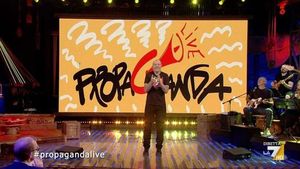On December 3, 2024, the YSL RICO trial, one of the longest-running criminal cases in Georgia's history, reached its conclusion when jurors acquitted two remaining defendants of serious charges, including murder. The trial was closely watched, especially due to its connection with popular Atlanta rapper Young Thug, whose real name is Jeffery Williams. The high-profile nature of this case highlighted the intersection of the legal system and hip-hop culture, stirring debate about the use of rap lyrics as evidence in court.
The narrative of this case stretches back several years. Young Thug was indicted along with 28 co-defendants under Georgia's Racketeer Influenced and Corrupt Organizations (RICO) Act for alleged gang affiliations and violent crimes associated with his record label, Young Slime Life (YSL). The prosecution's argument hinged on claims of the label's connections to the Bloods gang and alleged orchestrated violence intended to bolster its reputation.
The accused, Deamonte Kendrick, known as Yak Gotti, and Shannon Stillwell, faced charges relating to the 2015 drive-by shooting of Donovan Thomas Jr., said to be linked to gang rivalries. Despite the weight of these allegations, both men maintained their innocence. On the day of the verdict, Kendrick showed visible relief, making the sign of the cross and embracing his lawyer after being acquitted of all six charges. Stillwell, on the other hand, was convicted only for possession of a firearm, leading to his release with credit for time served and probation.
Young Thug, who had taken his own plea deal earlier, received 15 years of probation after pleading guilty to various gang and drug-related charges, which effectively removed him from the trial spotlight. His decision to negotiate with prosecutors contrasted sharply with Kendrick and Stillwell, who chose to gamble on their innocence rather than accept plea agreements. The decision proved fortunate for them as the jury’s not-guilty verdict marked significant legal and public relations victories.
The trial itself was tumultuous, mired with complications, including witness intimidation and even physical assaults involving the defendants and other involved individuals. Just days prior to the verdict announcement, Kendrick suffered injuries during a stabbing incident at the jail, underscoring the high-stakes environment surrounding the trial.
Prosecutors, led by Fulton County District Attorney Fani Willis, portrayed YSL as more than just a label. They argued it was intertwined with illegal activity and gang dynamics, co-opting rap music as a means to document and perpetuate its legends of violence. A significant portion of the evidence cited included song lyrics and social media posts, which sparked heated debates about the appropriateness of using artistic expression as criminal evidence.
Critics of the prosecution's approach argued it conflated music with real-life actions, undermining the artistic liberties and cultural nuance of hip-hop. Defense attorneys contended their clients were victims of flawed narratives, painted as gang members based on exaggerated claims stemming from their music and social media portrayals. They painted their stories as reflections of struggling communities rather than intrinsic criminality.
The jury deliberated for about 16 hours spread over four days and faced challenges recalling details from such extensive presentations—nearly 200 witnesses had provided testimony throughout the trial. Adjusting their focus on pivotal evidence and the legal standards necessary for guilty verdicts proved complex, indicating the case’s convolution likely hampered their decision-making.
Following the verdicts, defense lawyers felt vindicated, expressing gratitude for the jury's decision. They noted the significant toll the lengthy case had taken on both the defendants and the judicial process, calling attention to the need for expedited trials and more judicious use of resources. They also reflected on the broader ramifications of the trial's outcome for defendants facing similar allegations, especially within minority communities often over-policed.
While the outcome represented victory for Kendrick and Stillwell, the broader issues surrounding gang-related prosecutions, particularly the intersection with cultural expressions like rap music, remain contentious. The case has the potential to shape future legal strategies, especially as artists face scrutiny over their lyrical content and personal histories.
The YSL RICO case concluded, but its ramifications will linger, certainly altering perspectives within the rap community and influencing future prosecutorial tactics. How narratives are constructed through music and the impact of those constructions on legal outcomes will likely continue to fuel discussions among legal scholars, musicians, and cultural commentators.



